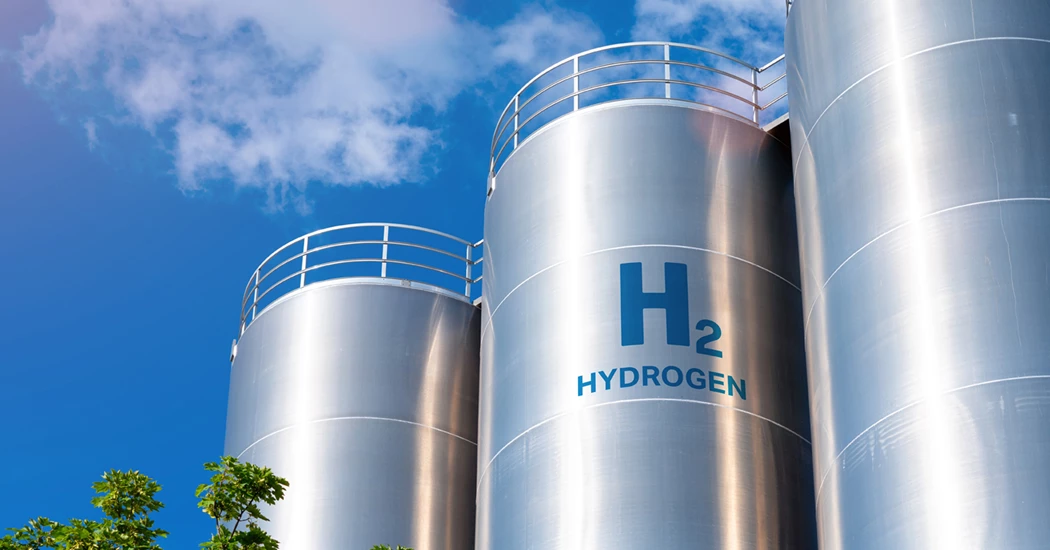DNV expands Singapore Lab for advanced testing of materials for hydrogen
DNV has expanded its research laboratory in Singapore with new testing equipment for the safety assessments of hydrogen transport and storage facilities, the independent energy expert and assurance provider said.
Hydrogen is essential to reach the Paris Agreement climate targets, as the best energy source to decarbonise hard-to-abate sectors such as heavy industry, maritime and large-scale transport. It is also central in supporting the integration of intermittent renewables through the provision of flexible power generation options.
As several gas network operators in the APAC region are exploring the opportunity to transport hydrogen through adapted or repurposed infrastructure, DNV’s new test chamber can be used to evaluate whether existing pipelines can safely transport hydrogen – either blended with natural gas or in pure form.
DNV is currently providing technical advice and support on the integration of blended hydrogen into gas trunkline assets in India – including transmission pipelines, interconnects and spur lines, compressors, valves, and metering stations and equipment. The company is also assisting Korea Gas Corporation (KOGAS) in a two-year project to assess the viability of blending hydrogen into South Korea’s gas transmission network, the company said in a statement.
“This latest investment in our Singapore research and test laboratory offers our APAC customers the advanced testing capabilities energy and other industries are asking for as private and public investment gets behind building local and regional hydrogen economies,” said Brice le Gallo, DNV’s Vice President and Regional Director, Energy Systems for Asia Pacific. “Assurance that hydrogen transportation and storage is safe and reliable can unlock the scale-up of its use to solve major decarbonization challenges such as reducing piped natural gas use in homes and industry.”
In technical terms, the new equipment in Singapore provides a hydrogen-ready integrated solution for fatigue crack growth rate (FCGR) testing. The test chamber includes hydrogen booster systems, safety and hydrogen alarms, ventilation systems, and an additional test vessel, DNV said.
DNV’s experts in Singapore will employ the new equipment to assess the fracture, fatigue, and corrosion performance of pipe material such as steel for varying concentrations of hydrogen under different operational and environmental conditions, such as high pressure.
Testing is necessary because hydrogen can make steel more brittle and prone to stress cracking. Hence, fracture resistance and fatigue crack growth rates obtained from laboratory testing of the steel and welds in hydrogen environments are essential parameters to assess the integrity, risk of fracture and remaining life of pipelines and equipment for hydrogen service.
DNV’s Singapore laboratory has offered materials and structural testing and advisory services – including fatigue and fracture toughness testing of steel and welds for pipelines, pressure vessels and process equipment – for more than three decades in the APAC region, providing assurance to oil and gas companies.
KEEPING THE ENERGY INDUSTRY CONNECTED
Subscribe to our newsletter and get the best of Energy Connects directly to your inbox each week.
By subscribing, you agree to the processing of your personal data by dmg events as described in the Privacy Policy.
More gas & LNG news

Slovakia Plans Talks on Gas Transit Via Ukraine Starting Next Week

Tesla-Supplier Closure Shows Rising Fallout of Mozambique Unrest

UAE Names Former BP CEO Looney to New Investment Unit Board

Oman Will Seek Talks With BP, Shell to Secure Latest LNG Project

GE Vernova Sees ‘Humble’ Wind Orders as Data Centers Favor Gas

China’s Oil Demand May Peak Early on Rapid Transport Shift

Qatar Minister Calls Out EU for ESG Overreach, Compliance Costs

Chevron Slows Permian Growth in Hurdle to Trump Oil Plan

After $2.5 Billion IPO Haul, Oman’s OQ Looks at More Share Sales
















